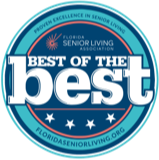Key Takeaways
- Choosing the right memory care community is essential for ensuring your loved one receives exceptional, compassionate care.
- Look for personalized care plans that prioritize the individual’s needs, interests, and well-being.
- Open communication and transparency can help build trust and provide peace of mind as you make this important decision.
- Ask questions and explore how a thoughtful approach can enhance the quality of life for both residents and their loved ones.
- A trusted care community is more than just a service—it’s a partner in your loved one’s happiness and health.
Choosing a memory care community for someone you love represents one of the most important decisions you’ll make together. While the process may feel overwhelming, asking the right questions will guide you toward a community that provides exceptional care, comfort, and quality of life. The perfect memory care environment doesn’t just meet basic needs—it enhances daily experiences and creates meaningful moments.
Understanding Care Philosophy and Approach
Begin your evaluation by exploring each community’s care philosophy. Ask how they approach memory care beyond medical supervision. The best communities view each resident as a whole person, not just a collection of symptoms.
What’s your philosophy regarding resident dignity and independence?
This question reveals whether the community empowers residents or creates unnecessary restrictions. Look for communities that encourage autonomy while providing appropriate safety measures.
Inquire about personalized care plans and how often they’re updated. Quality communities conduct regular assessments and adjust care as needs evolve. Ask about their approach to sundowning, wandering, and other common behaviors—responses should demonstrate understanding and compassion rather than simply containment strategies.
Evaluating Staff Qualifications and Training
The quality of care depends entirely on the people providing it. Ask about staff-to-resident ratios throughout different shifts, not just during peak hours. Lower ratios typically mean more personalized attention and better safety monitoring.
What ongoing training do your staff members receive?
Memory care requires specialized knowledge about dementia, Alzheimer’s disease, and related conditions. Staff should receive regular training updates on best practices, communication techniques, and emergency procedures.
Don’t hesitate to ask about staff retention rates. High turnover often indicates workplace issues that can affect care quality. Communities with stable, experienced teams create more consistent relationships with residents and families.
Safety and Security Features
Memory care communities must balance security with a home-like atmosphere. Ask about wandering prevention systems, which are discrete and don’t feel institutional. Inquire whether residents can move freely within secured areas or if movement is restricted.
How do you handle medical emergencies?
Understanding response protocols and staff capabilities provides peace of mind. Ask about on-site medical services, relationships with local healthcare providers, and medication management procedures.
Explore their approach to fall prevention, which goes beyond physical modifications to include activity programs that maintain strength and mobility. Quality communities implement comprehensive safety measures without creating an atmosphere of restriction.
Daily Life and Engagement
Memory care shouldn’t just be safe—it should be enriching. Ask about daily activities and how they’re tailored to different cognitive abilities. Good programs offer meaningful engagement rather than generic activities.
How do you accommodate individuals of different interests and backgrounds?
Personalized programming considers each resident’s history, preferences, and abilities. Look for communities that offer everything from gardening and art therapy to music programs and pet therapy.
Inquire about dining experiences beyond nutritional requirements. Are meals social occasions? Do residents have choices? Can the kitchen accommodate special dietary needs or preferences? Chef-prepared meals and restaurant-style dining can significantly enhance quality of life.

Family Involvement and Communication
Understanding how the community includes families in care decisions is crucial. Ask about family communication protocols—how often will you receive updates, and through what methods? Great communities proactively share both challenges and successes.
What family programs do you offer?
Look for communities that host regular events, provide educational resources, and create opportunities for families to connect with each other. Support doesn’t end with your loved one—it extends to the entire family network.
Examining Living Spaces and Amenities
Beyond basic room features, explore how living spaces promote comfort and familiarity. Can residents bring personal furniture and decorations? How are rooms personalized to feel like home rather than institutional?
What sort of common areas and outdoor spaces are there?
Quality communities offer various environments for different moods and activities—quiet reading nooks, social gathering spaces, and secure outdoor gardens. These details significantly impact daily experiences.
Inquire about services that enhance convenience and comfort. Do they offer concierge services for personal needs? What about beauty salon services, housekeeping, and laundry? These amenities reduce stress for families and maintain residents’ sense of dignity.
Financial Transparency and Future Planning
Discuss all costs upfront, including any potential additional fees for increased care levels. Ask whether pricing remains stable or adjusts based on care needs. Understanding the financial structure prevents surprises later.
How do you handle changes in care needs?
Some residents may require additional support over time, while others might maintain their current level for years. Choose communities that adapt services without forcing moves to different places.
Making Your Decision with Confidence
Trust your instincts during visits. Does the atmosphere feel warm and welcoming? Do staff members seem genuinely caring and engaged? Are residents participating in activities and appearing content? These observations often provide the most valuable insights.
The right memory care community becomes an extension of your family, providing not just exceptional care but peace of mind. When you find a place that answers these questions satisfactorily, you’ve discovered more than a care community—you’ve found a partner in maintaining your loved one’s quality of life.At Inspired Living at Ivy Ridge, we understand that choosing memory care means trusting others with someone precious to you. We welcome your questions and invite you to experience firsthand how thoughtful, personalized care can enhance every day for both residents and families. Schedule a tour with us today!









